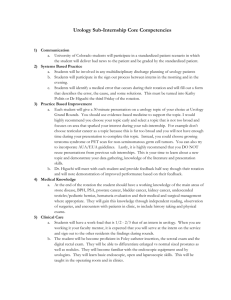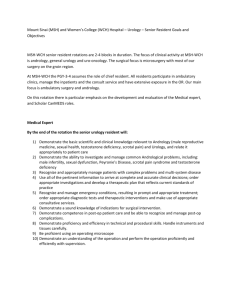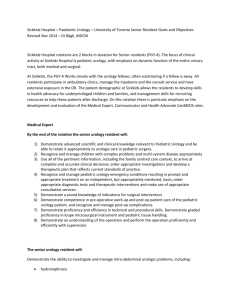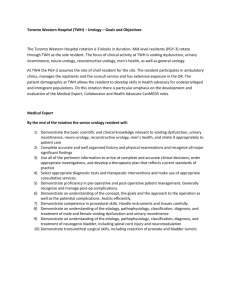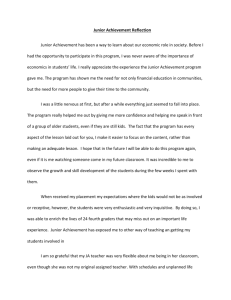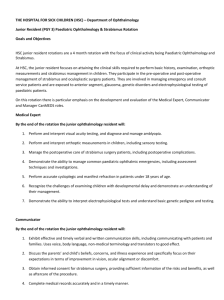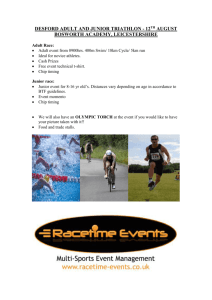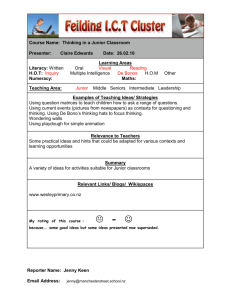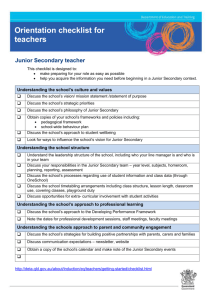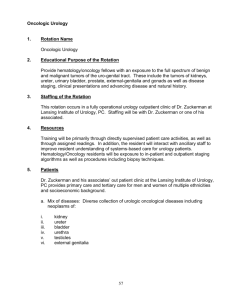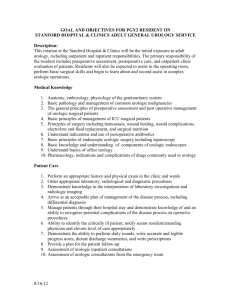Sickkids Junior Resident - Goals & Objectives - PGME
advertisement
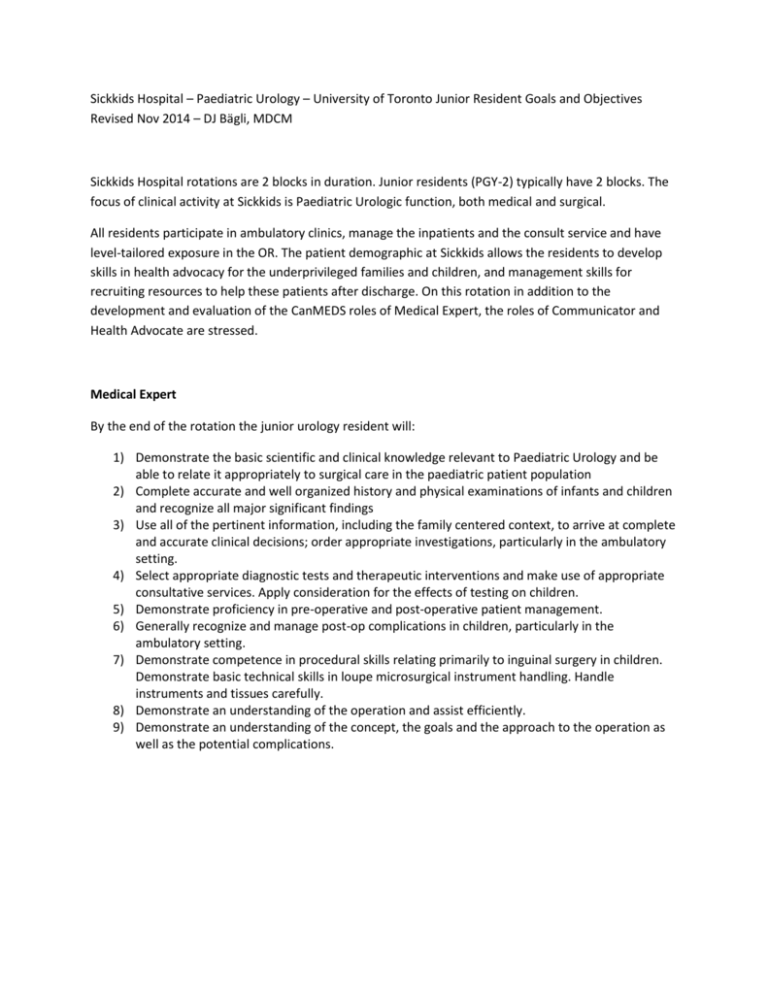
Sickkids Hospital – Paediatric Urology – University of Toronto Junior Resident Goals and Objectives Revised Nov 2014 – DJ Bägli, MDCM Sickkids Hospital rotations are 2 blocks in duration. Junior residents (PGY-2) typically have 2 blocks. The focus of clinical activity at Sickkids is Paediatric Urologic function, both medical and surgical. All residents participate in ambulatory clinics, manage the inpatients and the consult service and have level-tailored exposure in the OR. The patient demographic at Sickkids allows the residents to develop skills in health advocacy for the underprivileged families and children, and management skills for recruiting resources to help these patients after discharge. On this rotation in addition to the development and evaluation of the CanMEDS roles of Medical Expert, the roles of Communicator and Health Advocate are stressed. Medical Expert By the end of the rotation the junior urology resident will: 1) Demonstrate the basic scientific and clinical knowledge relevant to Paediatric Urology and be able to relate it appropriately to surgical care in the paediatric patient population 2) Complete accurate and well organized history and physical examinations of infants and children and recognize all major significant findings 3) Use all of the pertinent information, including the family centered context, to arrive at complete and accurate clinical decisions; order appropriate investigations, particularly in the ambulatory setting. 4) Select appropriate diagnostic tests and therapeutic interventions and make use of appropriate consultative services. Apply consideration for the effects of testing on children. 5) Demonstrate proficiency in pre-operative and post-operative patient management. 6) Generally recognize and manage post-op complications in children, particularly in the ambulatory setting. 7) Demonstrate competence in procedural skills relating primarily to inguinal surgery in children. Demonstrate basic technical skills in loupe microsurgical instrument handling. Handle instruments and tissues carefully. 8) Demonstrate an understanding of the operation and assist efficiently. 9) Demonstrate an understanding of the concept, the goals and the approach to the operation as well as the potential complications. The junior urology resident will: Demonstrate the ability to investigate and manage common urologic problems, including: Catheterization of infants and children Paediatric urinary tract infection Common urgent and non-urgent inguinal, genital, and scrotal pathology Upper tract imaging concepts of ultrasound and nuclear medicine and their roles and limitations in diagnosis and patient management Demonstrate fundamental skills, including: Simple pediatric cystoscopy Inguinal surgery in children Basic laparoscopic surgery techniques and approaches as they pertain to paediatric urology Solid consultancy skills in ambulatory clinic settings Communicator By the end of the rotation the junior urology resident will: 1) Exhibit effective and timely verbal and written communication skills, including: communicating with patients and families, verbal presentations, documentation and consult letters. 2) Establish a therapeutic relationship with child patients and their families, and communicate well with family. Provide clear and thorough explanations of diagnosis, investigations and management in a professional manner. Demonstrate empathy. 3) Obtain informed consent, providing sufficient information of the risks and benefits of the proposed procedure. 4) Write written orders, progress notes and consult notes are well organized and timely. Collaborator By the end of the rotation the junior urology resident will: 1) Participate effectively and appropriately in an inter-professional pediatric health care team. 2) Collaborate with community agencies (as required) as well as other pediatric health care professionals Manager By the end of the rotation the junior urology resident will: 1) Effectively contribute to the health care team, delegate and distribute tasks fairly; use time wisely. 2) Demonstrate management skills to reflect and balance priorities for patient care, sustainable practice and personal life. Health Advocate By the end of the rotation the junior urology resident will: 1) Support the health of children and their families by providing appropriate consultation, information on health maintenance, as well as community/home resources. 2) Intervene on behalf of children and their families or the community with respect to the social, economic and biologic factors that may impact on the child’s health. Scholar By the end of the rotation the junior urology resident will: 1) Maintain and enhance professional activities through ongoing learning. 2) Critically evaluate medical information and its sources and apply this appropriately to practice. 3) Optional: Engage in academic projects with a view to presentation at national/international meetings and publication. Professional By the end of the rotation the junior urology resident will: 1) Demonstrate a commitment to excellence in clinical care and personal and ethical conduct. 2) Exhibit proper professional behavior. 3) Adhere to legal and ethical codes of practice.
